New Destinations and the Early Childhood Education of Mexican-Origin Children.
Demography 56, no. 5: 1607-1634.
Previous Spatial Demography and Migration
Demography 56, no. 5: 1607-1634.
Social Science Research 85: 102364.
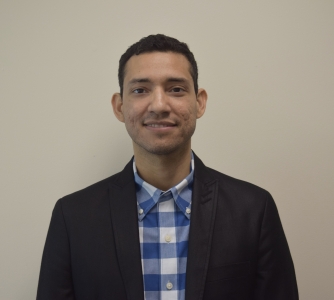
Yader R. Lanuza is assistant professor of sociology at UC Santa Barbara. His research examines the causes and consequences of social inequality in three domains: education, family and the criminal justice system. He focuses largely, though not exclusively, on the experiences of immigrants and their offspring from Latin America and Asia.
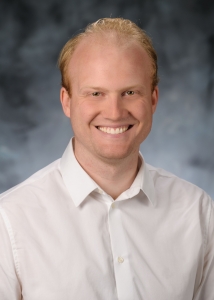
Ingmar is a Ph.D. student in the Department of Political Science at UC Santa Barbara. He researches how international institutions shape the dynamics of domestic and international migration caused by conflict and climate change. He focuses particularly on the role that UN bodies play in changing the calculus of migration decisions such as the capacity of these institutions to affect inter-ethnic trust and provide access to public goods. In a separate research agenda, Ingmar researches the effects of sex-ratio imbalances on the military. Aside from his substantive interest in issues around migration, demography, climate change, and political science, he is interested in survey research and quantitative methods. Prior to starting his Ph.D., he was a Teach First Deutschland fellow teaching math and English. Ingmar holds a B.A. in politics, philosophy, and economics from University College Maastricht and an M.A. in international relations from Jacobs University.
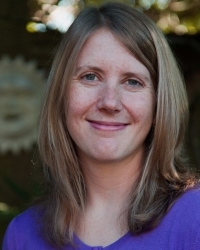
I am an Associate Professor in the Department of Geography at the University of California, Santa Barbara. My research interests include racial/ethnic inequality, immigration, education, health disparities, urban geography, population-environment interactions, and quantitative methods. My individual and collaborative work examines explanations for why racial/ethnic and immigrant-origin groups are unequally distributed across contexts– including schools, neighborhoods, and immigrant destinations– and evaluates the consequences of inequality in contextual exposures for disparities in outcomes in domains such as education, residential mobility, and health.
Grants, Awards and Distinctions:
UCSB Office of Research Early-Stage Seed Grants Award Facilitating the Integration of U.S. Climate and Human Population Data (PI) 2022. $9,976
UCSB Faculty Career Development Award U.S. Latinx Destinations, Education, and Health. 2021-2022. $5,000
NICHD R03 Award. Immigrant Destinations, Institutional Supports, and Health among Latino/a Children. (PI; co-Investigator is Dr. Robert Crosnoe) 2018-2021. $100,000
NSF (SES- Sociology) Award. Kin Location, Neighborhood Disadvantage, and Health and Well-Being across the Life Course. (co-PI with Drs. Amy Spring and Nicole Kravitz-Wirtz). 2020-2023. $450,000
NSF Social, Behavioral, and Economic Sciences Postdoctoral Research Fellowship. Immigrant Destinations and Achievement and Participation in STEM among Mexican-Origin Students. (PI). 2018-2019. $138,000
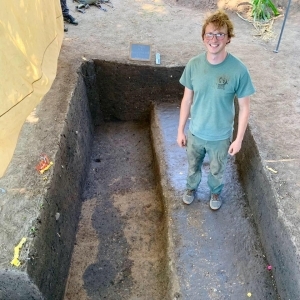
Graduate Student Fellow
Tyler Ferree is a graduate student in the archaeology wing of the Anthropology Department. He is interested in the ways that human communities mediate the challenges associated with settlement nucleation and the incorporation of multiple social groups in the context of violence and migration. His current research examines how societies respond to these challenges by shifting sociopolitical organization at several scales. He uses ceramic, lithic, and architectural data to demonstrate that people in the Central Illinois River Valley altered both their quotidian foodways and their politico ritual organization in order to moderate the challenges associated with settlement aggregation during the Late Mississippian (A.D. 1300-1425) period.
New York: Oxford University Press.
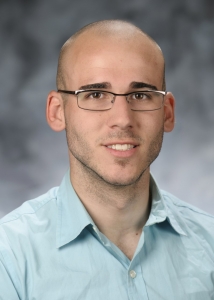
Graduate Student Fellow
Chris is a Ph.D. student in the Department of Political Science. His research focuses on how internal migration and demographic change affect elections, representation, political participation, and public policy. Current projects examine how black outmigration to suburbs impacts minority representation in traditionally white districts at the state and local level, and on how the spatial distribution of minority voters affects electoral outcomes. Additional research explores how humans interact with the natural environment, and Chris is currently a Crossroads Fellow at the Bren School of Environmental Science and Management where he is part of a team examining public opinion toward Grizzly Bear reintroduction in California.
Current Fellowships:
Crossroads Fellow, Bren School for Environmental Science and Management.
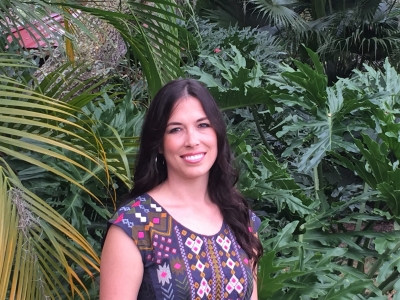
Graduate Student Fellow
I am a sociocultural anthropologist with a regional focus on the U.S. and southern Mexico. My research interests encompass the topics of international migration, farm labor, transborder community, ethnicity, race, culture, and indigenous peoples. From 2015 - 2016 I conducted ethnographic fieldwork in California, Florida, and Mexico to gather data for my dissertation project, a comparative study of the migration experiences of two indigenous migrant groups: The Mixtec of Oaxaca and the Highland Maya of Chiapas.